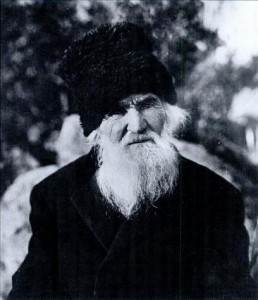Editor’s note: We are once again privileged to present the work of the remarkable Nicholas Chapman. Several months ago, we published two articles by Nicholas on the presence of Orthodoxy in Colonial Virginia (to read those, click here and here). Today, Nicholas introduces us to some of his most recent discoveries. On the next three Tuesdays, we’ll publish the three documents Nicholas discusses below.
At the end of July this year I was able to spend an afternoon at the National Archives in London, UK. I was aware that certain documents pertaining to the history of the Russian Orthodox Community in London were held there and I was hoping to find more information with regard to the early presence of Orthodoxy in British America before the American Revolution. Whilst my original goal was achieved I also discovered a wealth of other documents relating to the history of Orthodoxy in America between 1865 -1945. There is much more to translate and to write. I am grateful to Matushka Marie Meyendorff for her initial draft translation of the documents that follow. Not every part is immediately readable, but God willing a more complete and refined translation can be made in due course.
It would perhaps be helpful to briefly set a little historical background. There are three documents collectively filed under the heading of “The Russian Orthodox Church in America and Its Clergy 1865” They consist of a covering letter written by the venerable and very elderly Metropolitan Filaret of Moscow to the “Ober Procurator” of the Holy Synod of Russia – effectively the Minister of Religion. The Metropolitan encloses two further documents: a detailed and generally negative overview of the case against Agapius Honcharenko with an explanation as to why he was defrocked as a deacon by the Russian Synod in 1861. The second is a letter to an unknown priest (most likely the Rev. Eugene Popov the Russian Orthodox priest in London) from Agapius Honcharenko pleading his side of the story and essentially petitioning to be taken back by the Russian Church. Since his defrocking as a deacon, he appears to have been made a priest, either by the Church of Constantinople or the Church of Greece.
It is interesting that Metropolitan Filaret does not simply dismiss Honcharenko’s claims but appears to treat them seriously enough to suggest to the Ober-Procurator that they provide sufficient grounds to lead the Russian Church to establish a full ecclesial presence in the United States. It should be remembered that these documents predate the US purchase of Alaska from the Russian Empire in March 1867. It should also be noted that the American Civil War was still underway when these documents were written and that the Russian Empire was an active supporter of the Northern States during the conflict. Many in fact credit Metropolitan Filaret as being one of the driving forces behind the abolition of serfdom in Russian Empire (1861) and Agapius Honcharenko was also known as an advocate of that cause. This may partly explain Filaret’s somewhat sympathetic stance to his case.
The reference of Filaret to “American spiritual leaders” in California is also of interest and is most probably related to the overtures being made at that time by leaders of the Protestant Episcopal Church in the USA to the Russian Orthodox Church and efforts which had already begun toward the formation of a Russian Orthodox Parish in San Francisco.
Nicholas Chapman, Herkimer, New York, August 21 2010

Can tyou please provide the correct references for archival documents so they can be consulted by other scholars or ordered on microfiche.
The National Archives are identified as the source but what is the box number and file number or other relevant information please.
What about the “Finding Aid” for the archives.
Nicholas Chapman has sent along the following note:
Here is the address:
Here is the address for The national Archives of the United Kingdom:
The National Archives, Kew, Richmond, Surrey, TW9 4DU. Tel: +44 (0) 20 8876 3444
Online Catalogue:
http://www.nationalarchives.gov.uk/catalogue/default.asp?j=1
But Nicholas Chapman will have to provide more (full) infomation to see if the files are avaialbele online.